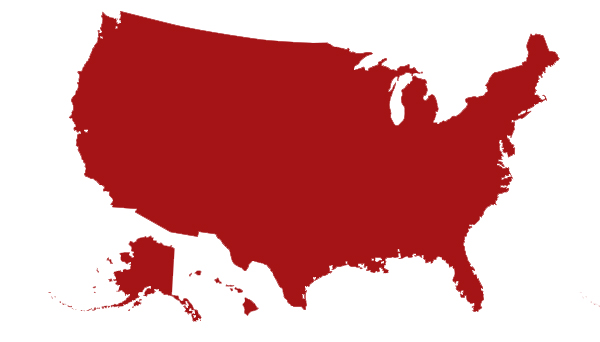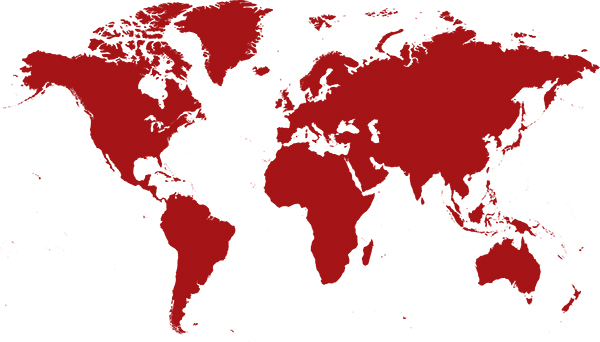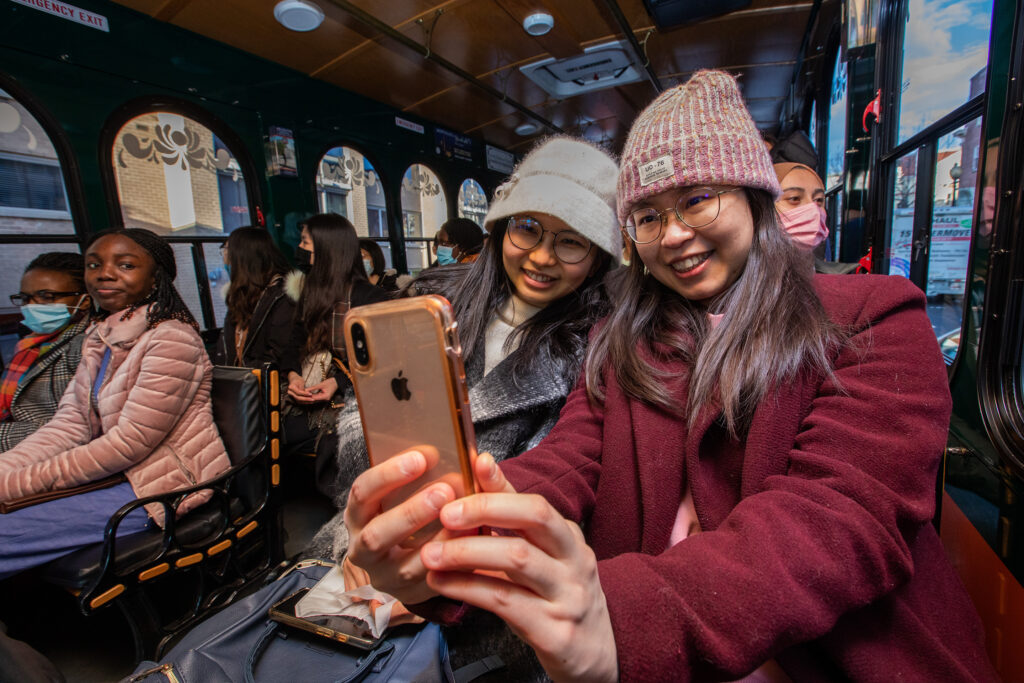Travel Restrictions for 39 Countries
Travel restrictions are in effect for 39 countries. Read our Guidance on 2025-2026 Travel Restrictions webpage for information.
On December 16, 2025, President Trump signed a Proclamation titled “Restricting and Limiting the Entry of Foreign Nationals to Protect the Security of the United States.” This order is effective beginning 12:01 am Eastern Time, Thursday, January 1, 2026.
H-1B Presidential Proclamation
On September 19, 2025, the President issued a Proclamation that, under certain circumstances, imposes a $100,000 supplemental fee tied to H-1B employment and entry to the United States. The original Proclamation’s scope and applicability were unclear.
On the evening of September 20, 2025, USCIS (DHS) issued a memorandum providing additional guidance and clarification on the scope of the proclamation. This memorandum clarified that the Proclamation applies prospectively only to H-1B employment-based petitions filed after 12:01 a.m. ET on September 21, 2025. Learn more and see WashU advice to all current active H-1B visa holders.
Student travel
We understand that you are likely to travel throughout your time at WashU. Therefore, It is important for you to stay informed about regulations and ensure you have a valid travel signature on your I-20 or DS-2019.
Scholar & employee travel
You may travel on your own or even for WashU during your stay. Therefore, it is important for you to stay informed about travel regulations related to your immigration status.
WashU has an international travel policy that applies to all university-related travel. If you are traveling abroad for business, research or study, you must register your travel information in the MyTrips International Travel Registry. Read travel policy limitations and suspensions on the WashU Global website.
Entry to the U.S.
It is your responsibility to be informed about travel regulations.
Your passport, visa, and other immigration documents must always be valid when entering the U.S. Due to possible delays, we advise that you apply for a visa well in advance of the date you wish to travel to the U.S.
Remember to carry your immigration documents on your person when traveling. Do not pack them in your checked luggage!
Visa timeline, delays & denials
Visit the Department of State website for visa appointment and processing wait times and information regarding administrative processing.
Visa revocation
Visit our Visa Revocation page for more information if you are arrested or convicted of an offense and your visa is revoked.
Issues at the U.S. port of entry
During regular business hours (M – F, 9 a.m. – 5 p.m.):
Contact OISS by email at OISS@wustl.edu or by phone at 314-935-5910.
After hours, weekends or holidays:
- Danforth Campus students and employees should contact WashU PD at 314-935-5555.
- Medical Campus students and employees should contact WUSM Protective Services at 314-362-4357.
In both instances, they will contact OISS staff.
A Customs and Border Protection (CBP) officer might also ask for your OISS/WashU contact information so that they can reach out to us directly. Please have the CBP officer use the same information listed above.
Know your rights: LPRs
If you are a legal permanent resident (LPR) who is traveling and detained at a U.S. port of entry, know your rights.
Travel within the U.S. (domestic travel)
Exercise normal precautions when traveling within the U.S. Bring the following documents with you in your carry-on luggage:
- Two forms of photo identification (including your passport with most recent visa stamp)*
- Printed form I-20/DS-2019 (for students and exchange visitors)
- Printed copy of your I-94 Record
- A printed copy of your transcript (for students)
- Printed I-797 approval notice (for employees)
- Printed appointment or employment letter (for scholars and employees)
You do not need an additional visa stamp or travel signature to travel within the U.S. That includes Alaska, Hawaii, Puerto Rico and the U.S. Virgin Islands.
*Note: Starting May 7, 2025, you must be REAL ID compliant to board domestic flights. You are able to use a passport instead of a REAL ID Drivers License or ID to board domestic flights.

Travel outside the U.S.
If you are planning to visit a country outside the U.S. which is not your country of citizenship or legal permanent residence, be sure to determine whether or not you will need a visa to enter that country. There are circumstances when your U.S. visa might allow you entry to a third country outside the U.S., but more often than not you might need to obtain a visa directly from that third country’s embassy/consulate. For information on gaining entry into specific countries, consult the embassy of the country you would like to visit:
- U.S. Department of State list of Foreign Consular Offices
- Embassy: list of websites of foreign embassies in the U.S.
- Canadian Embassy
- U.S. Department of State list of U.S. embassies and consulates in other countries
DHS has updated its instructions for all nonimmigrant visa applicants scheduling visa interview appointments:
Applicants for U.S. nonimmigrant visas should schedule their visa interview appointments at the U.S. Embassy or Consulate in their country of nationality or residence on. Read the December 12, 2025 update from the U.S. Department of State.
If you have a unique situation, we recommend that you reach out to us at oiss@wustl.edu.

Avoid using Global Entry and Nexus
International students and scholars should avoid using Global Entry and Nexus when entering the U.S. for several reasons:
- Global Entry and Nexus are designed for frequent travelers and may not account for the specific requirements and restrictions of student (F-1, J-1) or scholar visas (J-1, H-1B, E3, TN, O-1). Using Global Entry and Nexus could lead to misunderstandings about the purpose of your visit.
- The I-94 record, which details your entry and exit dates, is critical for maintaining your visa status. Using Global Entry and Nexus might result in incorrect or incomplete I-94 information, potentially causing issues with maintaining your legal status.
- International students and scholars often need to go through additional screening to verify their visa status, SEVIS records, approval notices and other documentation. Global Entry and Nexus kiosks do not provide this level of scrutiny, which could result in being sent to secondary inspection.
- CBP officers need to manually check immigration documents like the Form I-20 (for F-1 students), DS-2019 (for J-1 students and scholars) and USCIS Approval notices. Global Entry and Nexus kiosks bypass this important step, leading to potential complications.
- Incorrect entry processing can lead to long-term legal status issues, affecting your ability to study, work, or travel. You may be required to leave and re-enter the U.S. if your I-94 record cannot be corrected due to Global Entry and Nexus use.
Best Practice
- Manual Entry Processing: By going through the standard entry process, international students and scholars ensure that their documents are properly reviewed and that their entry is correctly recorded via the I-94 record, preserving their visa status and avoiding potential legal issues.
Disclaimer Statement
The Office for International Students and Scholars (OISS) provides resources and content for general informational and educational purposes only. This information does not constitute legal advice. The information provided is subject to changes in the law. For specific legal questions or guidance, students and scholars are encouraged to seek personalized legal advice from a qualified attorney at their own discretion and expense.
